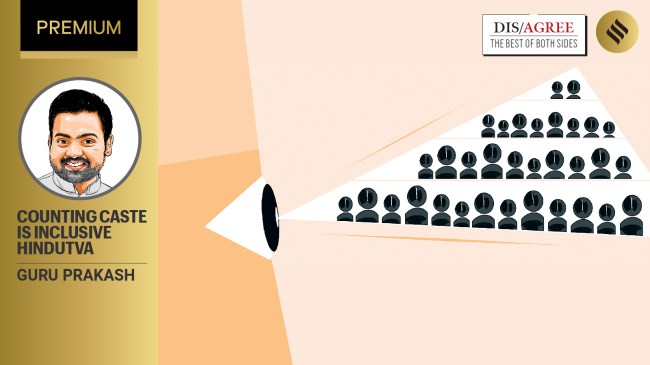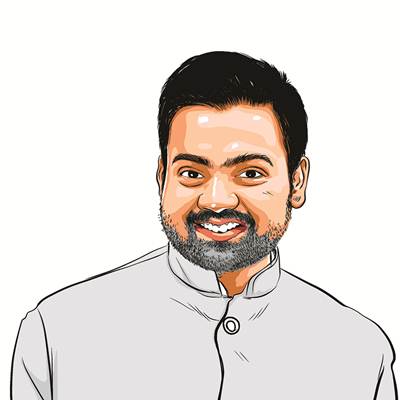Opinion Best of Both Sides: On caste census, BJP has done what Congress couldn’t
Opposition’s invocations of social justice are marred by hypocrisy. Centre’s move is part of BJP’s approach of inclusive Hindutva
 The last time India conducted a detailed caste census was in 1931. Since then, we have relied on outdated estimates, political guesswork and patchy surveys. (C R Sasikumar)
The last time India conducted a detailed caste census was in 1931. Since then, we have relied on outdated estimates, political guesswork and patchy surveys. (C R Sasikumar) On April 30, the NDA government announced its decision to collect caste data in the upcoming national Census. The move has surprised people in political circles and analysts alike. In a country where caste runs deep, through both daily life and the political calculus, this step marks not just a policy shift but a defining moment in modern Indian governance.
The Narendra Modi government’s decision is timely, bold and forward-looking. It has received bipartisan support, especially in my home state of Bihar. Babasaheb Ambedkar once said that India had yet to attain social democracy. The government’s move is a tribute to Ambedkar’s vision and mission. It is a move that will enable and ensure social justice and cohesion.
Including caste data in the Census isn’t just a bureaucratic decision. It is a long-pending transformation. The last time India conducted a detailed caste census was in 1931. That was under British rule. Since then, we have relied on outdated estimates, political guesswork and patchy surveys. The 2011 Socio-Economic and Caste Census (SECC), started under the UPA government, could have filled the gap — but it was bogged down by inconsistencies, underreported data, and, in the end, was never officially released. It was a missed opportunity, and perhaps a reflection of political hesitation to confront uncomfortable truths.
Neither Indira Gandhi, Rajiv Gandhi, nor Manmohan Singh could make such a move. When PM Modi came to power in 2014, he asserted in his speeches that the deprived sections of society were at the centre of this government. The announcement of the caste census reaffirms that stand. It is important to recall and acknowledge that PM Modi comes from an OBC community in Gujarat and, with tireless hard work, he rose to be the CM and was subsequently elected PM of the country.
For nearly a century, caste enumeration has been absent from the Census. The blame falls squarely on the Congress party’s lackadaisical attitude towards social justice. Congress has historically been against such important policy decisions because it is not genuinely committed to mending social fissures. Congress and its allies are only interested in serving their personal and familial interests. Their invocations of social justice are marred by lies and hypocrisy. It is also important to remember that Congress’s SECC had its fair share of glaring flaws.
The Modi government’s intervention will now ensure a systematic approach to the caste census, which is in accordance with Pandit Deendayal Upadhyaya’s vision of empowering the last citizen in the village. Moving beyond state-level divides on the issue, the central government will ensure transparency in bringing out a Census that facilitates human-centric development and helps society come together. It will reaffirm that we are one. Congress must be reminded of the way it has paid short shrift to tall Dalit leaders like B R Ambedkar and Babu Jagjivan Ram when party leaders try to push their false propaganda of championing Dalit empowerment and assertion.
Adding caste data to the next Census isn’t just a bureaucratic move. It’s a political and moral milestone. It challenges the Opposition’s claim that the BJP is out of step with caste-based inequities.
The recent by-election results in Uttar Pradesh tell a compelling story. The BJP’s mix of inclusive Hindutva and grounded caste outreach struck a chord with voters — undercutting the narrative that only caste arithmetic wins elections. The Opposition’s belief that a caste census would automatically tilt the balance proved off the mark.
The Modi government’s resolve to empower the subaltern has been discernible throughout its tenure. Be it accommodating those from the SC, ST, and OBC communities in the Union Cabinet or ensuring India got its first tribal woman President or ensuring representation for subaltern leaders in governments by appointing them as chief ministers or deputy CMs. Its actions show the country that it not only cares for subalterns but is also resolute in enabling them to occupy the highest echelons of power.
To top it all, Samajwadi Party supremo Akhilesh Yadav — Congress’s ally in UP — was seen in a poster where half the frame was his face, the other half Babasaheb Ambedkar. The Samajwadi Party and its leaders clearly have little sympathy for Dalits and their icons and have merely used them as token vote banks.
PM Modi has led and shown the way. Seventy-eight years after Independence, India is poised to take its rightful place amidst global uncertainties. The caste census comes as a policy imperative that can be showcased to the world, to display
that India is uniquely positioned to solve deep-rooted social divisions. While this will not happen overnight, we are making rapid strides.
I hope the Modi government uses to its full advantage Web 3.0 technologies in the process of conducting the Census, which will show the world India’s technological ability. With caste enumeration, India’s policymakers will be able to shape public policies that improve the lived reality of citizens.
The writer is national spokesperson of the BJP





